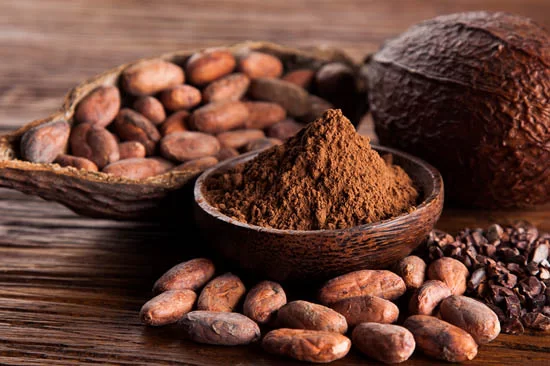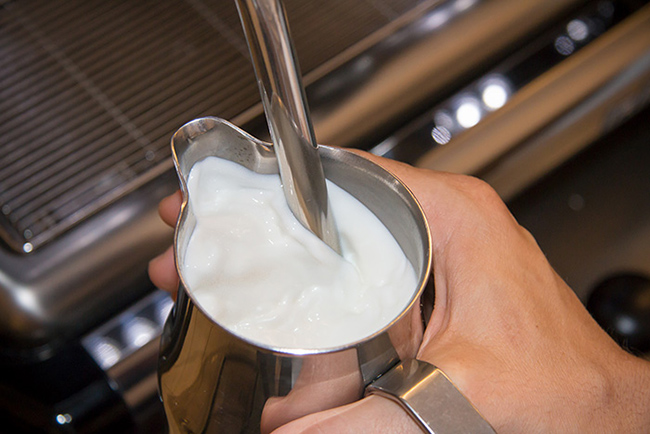The Brew of Benefits: Exploring the Remarkable Advantages of Drinking Coffee
1. Introduction
Coffee, the aromatic beverage brewed from roasted coffee beans, is more than just a morning ritual for billions around the globe. It’s a cultural phenomenon, a social lubricant, and increasingly, a subject of scientific interest for its potential health benefits. While once debated for its effects, mounting research suggests that moderate coffee consumption can offer a surprising array of advantages, impacting everything from cognitive function and physical performance to long-term disease prevention. This essay will delve into the remarkable benefits of drinking coffee, exploring the scientific evidence behind its positive effects on our minds and bodies.

2. Boosting Cognitive Function and Alertness
Perhaps the most well-known benefit of coffee is its ability to enhance cognitive function and alertness. This is primarily attributed to caffeine, a natural stimulant found in coffee beans. Once consumed, caffeine is rapidly absorbed into the bloodstream and travels to the brain, where it blocks adenosine, an inhibitory neurotransmitter that makes us feel tired. By blocking adenosine, caffeine increases the release of other neurotransmitters like dopamine and norepinephrine, which are associated with improved mood, focus, and reaction time. Studies have consistently shown that coffee consumption can lead to enhanced concentration, improved vigilance, faster reaction times, and better overall cognitive performance, making it a valuable tool for tackling demanding tasks, studying, or simply starting the day with mental clarity. Furthermore, research suggests that regular coffee intake may even contribute to enhanced memory consolidation and potentially protect against age-related cognitive decline.
3. Potential Physical Health Benefits

Related articles 01:
1. https://cacaocafenewjersey.com/cach-phan-biet-cocktail-va-mocktail
2. https://cacaocafenewjersey.com/cac-thuong-hieu-cacao-noi-tieng-the-gioi-va-viet-nam
3. https://cacaocafenewjersey.com/7-cong-thuc-pha-che-matcha-hot-trend-ma-cac-chu-quan-khong-nen-bo-qua
4. https://cacaocafenewjersey.com/key-services-provided-by-a-personal-injury-lawyer
5. https://cacaocafenewjersey.com/why-choose-an-online-business-management-degree
Beyond its cognitive benefits, coffee has been linked to a range of potential positive impacts on physical health:
- Reduced Risk of Type 2 Diabetes: Numerous observational studies have indicated a significant association between regular coffee consumption and a lower risk of developing type 2 diabetes. While the exact mechanisms are still being investigated, it’s believed that compounds in coffee, such as chlorogenic acids, may improve insulin sensitivity and glucose metabolism.
- Protection Against Neurodegenerative Diseases: Research suggests that coffee consumption may offer protection against neurodegenerative diseases like Parkinson’s and Alzheimer’s. Studies have shown that caffeine can help protect dopamine-producing neurons in the brain, potentially reducing the risk of Parkinson’s disease. Similarly, some evidence indicates that regular coffee drinkers may have a lower risk of developing Alzheimer’s disease and other forms of dementia.
- Liver Health: Several studies have found that coffee consumption may be beneficial for liver health. Regular coffee drinkers appear to have a lower risk of developing various liver diseases, including cirrhosis, fatty liver disease, and liver cancer. The antioxidants and other compounds in coffee are thought to play a protective role.
- Heart Health: While past concerns existed regarding coffee’s impact on heart health, current research suggests that moderate consumption may actually be beneficial for cardiovascular health in many individuals. Some studies have linked regular coffee intake to a lower risk of heart failure and stroke. However, it’s important to note that individuals sensitive to caffeine may experience increased heart rate or blood pressure, so moderation is crucial.
- Lower Risk of Certain Cancers: Emerging research has linked coffee consumption to a reduced risk of certain types of cancer, including colorectal cancer, prostate cancer, and endometrial cancer. The antioxidants and anti-inflammatory compounds in coffee are thought to contribute to these protective effects.
4. Rich in Antioxidants and Nutrients
Coffee is not just a source of caffeine; it’s also a rich source of antioxidants and essential nutrients. In fact, for many people in Western diets, coffee is a significant dietary source of antioxidants, which are compounds that help protect the body against damage from free radicals. Coffee beans contain numerous beneficial antioxidants, including chlorogenic acids, which have been linked to various health benefits. Additionally, coffee contains small amounts of essential nutrients such as riboflavin (vitamin B2), pantothenic acid (vitamin B5), manganese, potassium, and magnesium, contributing to overall nutritional intake.
5. Mood Enhancement and Mental Well-being

Beyond its direct effects on cognitive function, coffee consumption has also been linked to improved mood and mental well-being. Studies have suggested a potential association between regular coffee intake and a lower risk of depression. The caffeine in coffee is believed to enhance mood by increasing the release of dopamine, a neurotransmitter associated with pleasure and reward. The simple act of enjoying a warm cup of coffee can also be a comforting and mood-boosting experience for many individuals. Furthermore, the social aspect of coffee culture, whether meeting friends at a café or sharing a coffee break at work, can contribute to feelings of connection and well-being.
6. Potential Benefits for Physical Performance
Coffee can also be a valuable ally for those seeking to enhance their physical performance. Caffeine is known to increase adrenaline levels, which can prepare the body for intense physical activity. Studies have shown that consuming coffee before exercise can improve endurance, reduce perceived exertion, and enhance performance in both aerobic and anaerobic activities. Caffeine can also help to mobilize fatty acids from fat stores, potentially improving fat burning during exercise. This makes coffee a popular pre-workout beverage for athletes and fitness enthusiasts.
Related articles 02:
1. https://cacaocafenewjersey.com/four-delicious-cocoa-recipes-to-warm-your-soul
2. https://cacaocafenewjersey.com/ca-phe-cold-brew-la-gi-cach-pha-ca-phe-u-lanh-don-gian-chuan-vi
3. https://cacaocafenewjersey.com/recognizing-the-decline-key-signs-that-cocoa-has-gone-bad
4. https://cacaocafenewjersey.com/cac-thuong-hieu-cacao-noi-tieng-the-gioi-va-viet-nam
5. https://cacaocafenewjersey.com/7-cong-thuc-pha-che-matcha-hot-trend-ma-cac-chu-quan-khong-nen-bo-qua
7. Moderation is Key and Individual Differences

While the benefits of moderate coffee consumption are becoming increasingly clear, it’s crucial to emphasize the importance of moderation. Excessive caffeine intake can lead to negative side effects such as anxiety, insomnia, jitters, and digestive issues. Generally, health professionals recommend limiting coffee consumption to around 3-4 cups per day. It’s also important to acknowledge that individuals have varying sensitivities to caffeine, and some may experience negative effects even with moderate intake. Factors such as genetics, body weight, and overall health can influence how individuals react to caffeine. Additionally, coffee can interact with certain medications, so it’s always advisable to consult with a healthcare professional if you have any concerns.
8. Conclusion
In conclusion, the simple act of enjoying a cup of coffee offers a remarkable range of potential benefits that extend far beyond a mere energy boost. From enhancing cognitive function and alertness to potentially reducing the risk of chronic diseases and improving physical performance, moderate coffee consumption appears to be a surprisingly healthy habit for many individuals. Rich in antioxidants and essential nutrients, coffee can contribute to overall well-being and even elevate mood. However, as with most things, moderation is key, and individual sensitivities should always be considered. So, the next time you reach for that comforting cup of coffee, you can do so knowing that you’re not just indulging in a delicious beverage but potentially reaping a wealth of health advantages as well.











